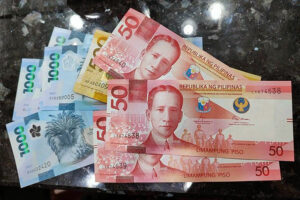
PHL credit growth outlook improves
By Luisa Maria Jacinta C. Jocson, Reporter
THE PHILIPPINES is seen having the most optimistic outlook for credit growth among Southeast Asian countries, Bank of America (BofA) Global Research said.
“The Philippines is the only country within ASEAN (Association of Southeast Asian Nations) showing an ‘improving’ trend and has seen a faster recovery in credit growth to 9-10%… The latest reading of the indicator implies slight improvement from current levels,” it said in a report.
Under its ASEAN Credit Growth Indicators index, BofA assesses the “directional trends and key turning points” for credit growth in the ASEAN-5. It gauges how banks’ loan growth is likely to shape up over the next one to two quarters.
Compared with its neighbors, the Philippines was the only country to have an “improving” outlook. This was driven by “an increase in import growth and net sales index, partially offset by lower auto sales.”
Meanwhile, Malaysia and Indonesia are seen to have a “declining” outlook, while credit growth in Singapore and Malaysia is expected to be “flat.”
BofA said its overall outlook for credit growth in ASEAN is likely to remain “tepid and mixed.”
“Our ASEAN economist team highlights an underwhelming growth picture for Indonesia in 2024, driven by soft manufacturing data and a weak textile industry, but believes growth will likely be firmer in 2025, with scope for further gains from the down-streaming sector,” it said.
It also noted the “constructive growth outlook in the near term for Malaysia, boosted by recovery in external demand, healthy labor market conditions and a lift from tourism.”
Latest data from the Bangko Sentral ng Pilipinas (BSP) showed bank lending jumped by 11% year on year to P12.4 trillion in September. This was the fastest loan growth since 13.7% posted in December 2022.
Credit growth is seen to expand further amid an improving interest rate environment, Juan Paolo E. Colet, managing director at Chinabank Capital Corp., said.
“We expect healthy credit growth to continue in view of looser monetary policy, stable employment, and sustained economic expansion,” he said in a Viber message.
The central bank began its easing cycle in August with a 25-basis-point (bp) rate cut, its first reduction since November 2020. Since then, the BSP has cut borrowing costs by a total of 50 bps, bringing the key rate to 6%.
The Monetary Board’s last meeting this year is scheduled for Dec. 19. BSP Governor Eli M. Remolona, Jr. has signaled the possibility of another 25-bp cut before the year ends.
“The lending outlook remains positive as companies have been largely optimistic about business prospects and we see a resilient borrowing appetite from consumers. There is also a good pipeline of projects that will require a lot of debt financing,” Mr. Colet said.
Increasing credit activity is seen to continue amid strong demand and resilient macroeconomic fundamentals, the BSP earlier said in its latest report on the Philippine financial system.
Data from the report showed that gross total loans had jumped by 12.4% annually to P14.3 trillion as of June. Banks’ credit-to-gross domestic product (GDP) ratio stood at 56.4%, improving from 54.9% a year earlier.
On the other hand, Mr. Colet noted risks such as the incoming Trump administration and its restrictive trade policies.
“The year ahead could pose some challenges given the potential impact of Trump 2.0, but we are hopeful that the Philippines can navigate the potential complexities in view of our strong economic fundamentals and special relationship with the US,” he added.
